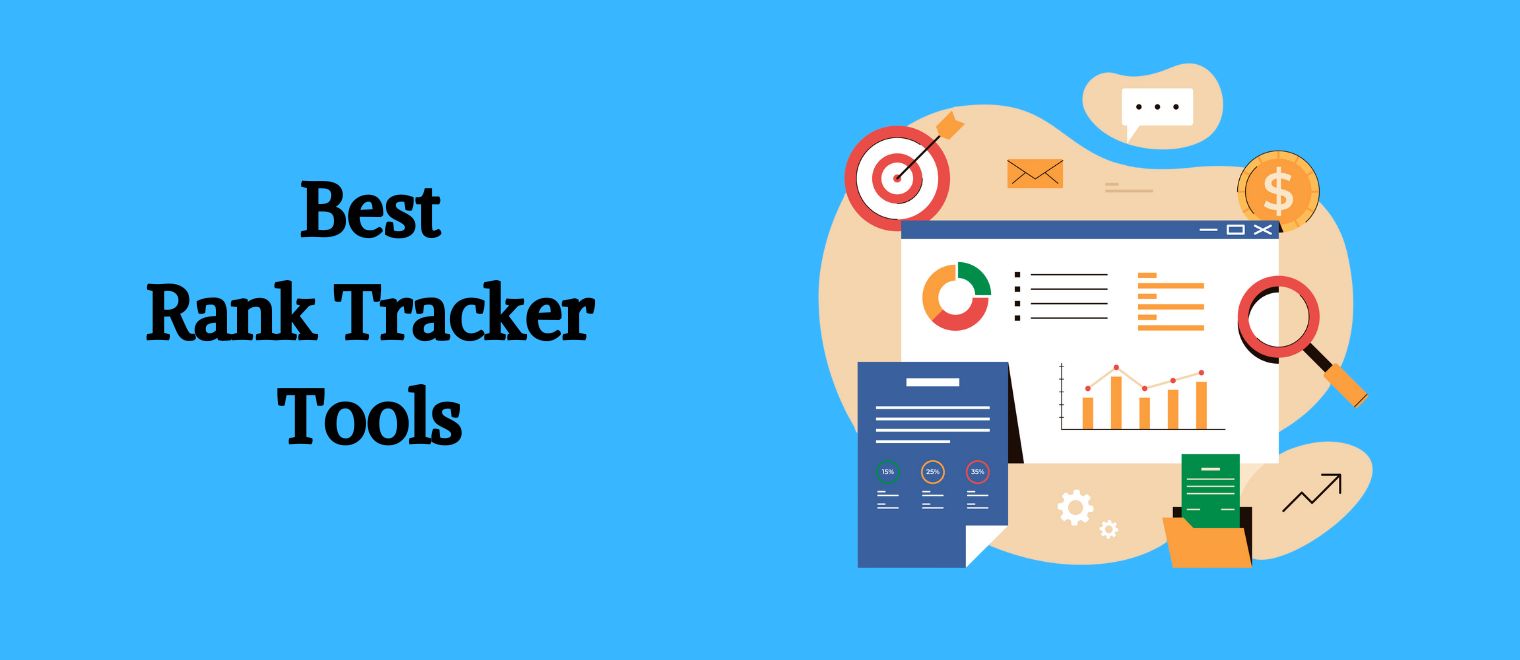In the ever-evolving world of digital marketing, understanding your website's performance is crucial. A reliable rank tracker is essential for SEO professionals and business owners alike, as it helps monitor your site's rankings in search engines. This comprehensive guide delves into the best rank trackers available today, providing you with the tools you need to enhance your online presence.
With the rise of online competition, optimizing your website for search engines is more important than ever. A good rank tracker not only helps you keep tabs on your keyword rankings but also provides insights into your competitors' performance. In this article, we will explore the top rank trackers, their features, and how they can benefit your SEO strategy.
Whether you're a seasoned SEO expert or a business owner just starting, this guide will equip you with the knowledge you need to choose the best rank tracker for your needs. Join us as we explore the world of rank tracking and how it can help you achieve your digital marketing goals.
Table of Contents
- What is Rank Tracking?
- Importance of Rank Trackers
- Features to Look for in a Rank Tracker
- Top Rank Trackers
- Comparison of Rank Trackers
- How to Use a Rank Tracker Effectively
- Common Issues and Solutions
- Conclusion
What is Rank Tracking?
Rank tracking refers to the process of monitoring a website's position in search engine results pages (SERPs) for specific keywords. By using a rank tracker, you can determine how well your SEO efforts are paying off and where improvements can be made. Rank tracking tools provide a wealth of data, including:
- Keyword rankings
- Search visibility
- Competitor analysis
- Historical data
Importance of Rank Trackers
Understanding the importance of rank trackers is key to developing an effective SEO strategy. Here are several reasons why you should invest in a rank tracker:
- Performance Monitoring: Rank trackers allow you to monitor your website's performance over time, helping you identify trends and areas for improvement.
- Competitor Insights: By tracking your competitors' rankings, you can gain insights into their strategies and adjust your approach accordingly.
- Data-Driven Decisions: With access to accurate data, you can make informed decisions about your SEO efforts, helping you allocate resources more effectively.
- Goal Tracking: Rank trackers enable you to set and track specific SEO goals, making it easier to measure your success.
Features to Look for in a Rank Tracker
When choosing a rank tracker, it's essential to consider the features that will best suit your needs. Here are some key features to look for:
1. Accurate Data
Ensure the rank tracker provides accurate and up-to-date data on keyword rankings.
2. Competitor Analysis
The ability to track competitors' rankings and strategies is crucial for staying ahead in the game.
3. Historical Data
Access to historical data helps you analyze trends and measure the effectiveness of your SEO efforts.
4. User-Friendly Interface
A user-friendly interface makes it easier to navigate the tool and access the information you need.
Top Rank Trackers
Here are some of the best rank trackers available today:
- SEMrush: A comprehensive SEO tool that offers robust rank tracking features, competitor analysis, and more.
- Ahrefs: Known for its powerful backlink analysis, Ahrefs also provides excellent keyword tracking capabilities.
- Serpstat: An all-in-one SEO platform that includes rank tracking, site auditing, and competitor research.
- Google Search Console: A free tool that provides valuable insights into your website's performance in search results.
Comparison of Rank Trackers
When choosing a rank tracker, it's important to compare the features and pricing of various options. Here is a quick comparison:
| Rank Tracker | Key Features | Pricing |
|---|---|---|
| SEMrush | Keyword tracking, competitor analysis, site audits | $119.95/month |
| Ahrefs | Backlink analysis, keyword tracking, site auditing | $99/month |
| Serpstat | Rank tracking, keyword research, site audits | $69/month |
| Google Search Console | Performance tracking, indexing status, mobile usability | Free |
How to Use a Rank Tracker Effectively
To make the most of your rank tracker, follow these steps:
- Set Up Your Account: Create an account and set up your website's profile in the rank tracker.
- Add Keywords: Input the keywords you want to track, focusing on those relevant to your business.
- Monitor Rankings: Regularly check your keyword rankings and analyze the data provided.
- Adjust Your Strategy: Use the insights gained from the rank tracker to refine your SEO strategy and improve your rankings.
Common Issues and Solutions
Here are some common issues users face with rank trackers and how to solve them:
1. Inaccurate Data
If you're receiving inaccurate data, ensure that you've set the right location and search engine settings in the tool.
2. Slow Performance
If the rank tracker is running slow, check your internet connection or consider upgrading to a higher-tier plan for better performance.
3. Difficulty Navigating the Tool
If you're struggling to navigate the rank tracker, refer to the help documentation or tutorials provided by the service.
Conclusion
In summary, choosing the best rank tracker is essential for tracking your website's performance and staying competitive in the digital landscape. By understanding the features to look for and exploring the top options available, you can make informed decisions that will enhance your SEO strategy. Don't hesitate to share your thoughts in the comments below or check out our other articles for more insights into digital marketing!
Call to Action
If you found this article helpful, please share it with your network and consider subscribing to our newsletter for more valuable content!
Thank you for reading, and we hope to see you again soon!
Ovidio Guzmán López Wife: A Deep Dive Into The Life Of The Infamous Drug Lord's Partner
Aisha Atkins: A Journey Through Her Life And Achievements
Is Rob Schneider Jewish? A Deep Dive Into His Heritage And Career


